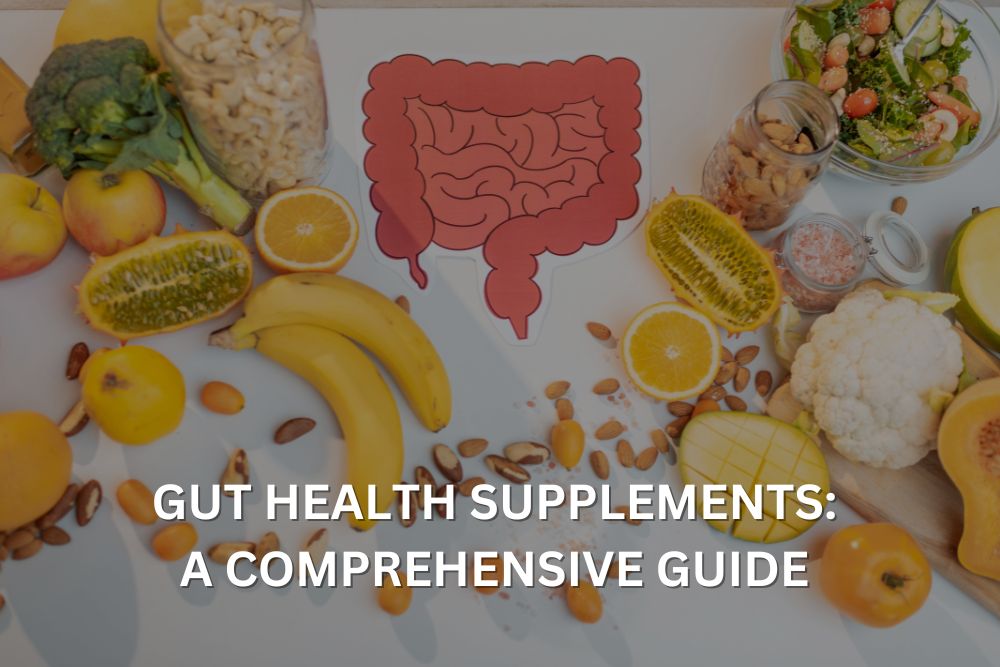Start the New Year with Sustainable Health and Dietary Changes.

Start the New Year with Sustainable Health and Dietary Changes As we welcome the new year, it’s the perfect time to evaluate our health and make positive, lasting changes. Whether you’re looking to lose weight, improve your fitness, or simply adopt a healthier lifestyle, setting realistic and sustainable goals or habits is key. A great first step in your journey is to understand your current body composition. Using various tools and apps can be confusing, as they often provide wide variations in measurements. It’s definitely worth trying a few different options to establish a starting point for tracking, rather than focusing solely on complete accuracy. One of the tools that can be interesting to those embarking on a new health journey is checking body fat percentage. Why Body Fat Matters While the number on the scale can be a useful indicator, it doesn’t tell the full story of your health. Body fat percentage is a much more accurate measure of overall health and fitness. Too much body fat, especially around the abdominal area, can increase the risk of various health issues, including diabetes, heart disease, and high blood pressure. By understanding your body fat percentage, you can better assess your health and take appropriate steps to improve it. If your body fat percentage is higher than recommended, this may be a sign that it’s time to make changes to your diet and lifestyle. Using a Body Fat Calculator can give you a snapshot of where you stand and motivate you to start making those changes. How a 121 Dietitian Can Help Making changes to your diet and exercise routine is not always easy, and that’s where the expertise of a Dietitian can make all the difference. At 121 Dietitian, we offer various programs to assist. Our Weight Loss for Life Program focuses on sustainable weight loss strategies, tailored to fit your unique needs. This program emphasises healthy eating habits, lifestyle changes, and mindset shifts that help you make lasting improvements to your health without the need for quick fixes or fad diets. With the support of our 121 Dietitian services, you’ll not only receive personalised nutrition plans, recipes, shopping lists but also ongoing guidance to keep you on track for life. Our goal is to ensure you achieve your weight loss goals in a way that is both enjoyable and sustainable, so you can enjoy a healthier future without feeling deprived. Blood testing may also be recommended based on your health and any symptoms. Get Started Today As you begin your journey towards better health, using the Body Fat Calculator can help you understand your current status and where you need to be. While it’s important to keep an eye on the numbers, don’t get too caught up in them; if your body fat percentage is high, aim to move it into a safer range. The formulas used in these calculations are estimates. Therefore, if you’re seeking precise accuracy, more advanced methods like DEXA scans can provide more reliable body fat measurements. Once you identify your body fat percentage, the next step is to take action. This is where the 121 Dietitian Weight Loss for Life Program can provide the structure, support, and accountability you need to succeed. Start the year strong by making meaningful changes and collaborating with a Dietitian who is dedicated to helping you achieve your lifelong goals. Contact us today, and let’s take the first step towards a healthier, happier you. I’ll be covering additional tools, such as BMI and Height to Waist Ratio, in upcoming blogs, so stay tuned! If you want to book your programme TODAY we would love to help you. You can book a 121 Dietitian Programme today by clicking on the link below Book Now
How Gut Health Affects Your Immune System

How Gut Health Affects Your Immune System As someone with 30 years of experience in Nutrition, its exciting times that we are now understanding how gut health affects your immune system. This is a topic that’s gaining more attention in the health world, and for good reason. Many people are curious about how what happens in our gut can influence our overall health, especially our ability to fight off illnesses. In this blog I will explore this connection and answer some common questions. What is Gut Health? Gut health refers to the balance of microorganisms living in your digestive tract. This includes bacteria, viruses, fungi, and other microbes. A healthy gut has a diverse range of these microorganisms, which play a crucial role in digestion, metabolism, and immune function. When the balance is disrupted – often due to poor diet, stress, or illness – it can lead to various health issues. The Gut-Immune System Connection Important Fact: About 70% of your immune system is located in your gut. This means that the state of your gut directly influences how well your body can defend itself against infections and diseases. Here’s how: Barrier Function: The gut acts as a barrier that prevents harmful substances from entering the bloodstream. A healthy gut lining helps keep out bugs and toxins. Microbiome Diversity: A diverse microbiome (a community of microorganisms that can usually be found living together) supports a strong immune response. Different types of beneficial bacteria help train your immune system to distinguish between harmful invaders and harmless substances. Production of Immune Cells: The gut microbiota produces various compounds that help stimulate the production of immune cells. These cells are essential for fighting infections. Inflammation Regulation: A balanced gut microbiome helps regulate inflammation in the body. Chronic inflammation can weaken the immune system and lead to various diseases. Common Questions About Gut Health and Immunity 1. How can I improve my gut health? Improving gut health involves several lifestyle changes: Eat a Varied Diet: Focus on whole foods rich in fibre, such as fruits, vegetables, whole grains, and legumes. These foods feed beneficial gut bacteria. Include Fermented Foods: Foods like yogurt, kefir, sauerkraut, and kimchi contain probiotics that promote a healthy microbiome. Stay Hydrated: Drinking plenty of water supports digestion and nutrient absorption. Limit Processed Foods: Reduce intake of sugar and artificial additives that can harm beneficial bacteria. 2. Are probiotics necessary? Probiotics can be beneficial for some individuals, especially after taking antibiotics or during times of stress. However, probiotics can trigger symptoms for those with issues with histamines and so it’s best to consult with a Dietitian before starting any supplements. 3. Can stress affect my gut health? Yes! Chronic stress can disrupt the balance of gut bacteria and lead to inflammation. It is always recommended to assess your current source of stress and reduce it where you can however many of us can not change this so practicing stress management techniques like mindfulness, yoga, or regular exercise can help maintain a healthy gut. Getting outside is super important to connect with nature. 4. How long does it take to improve gut health? Improvements can often be seen within a few days, or weeks of making dietary and lifestyle changes we see this in hundreds of our patients. However, everyone’s body is different; some may take longer to notice significant changes. 5. What are the signs of an unhealthy gut? Common signs include: Digestive issues like bloating, gas, or diarrhoea, constipation Food intolerances Unexplained weight changes Sleep disturbances or constant fatigue, anxiety Skin irritation Autoimmune conditions 6. Can gut health influence mental health? Yes, there’s a strong connection between gut health and mental well-being. The gut-brain axis is a bidirectional communication system between the central nervous system and the enteric nervous system of the gut. A healthy gut can positively impact mood, stress levels, and even cognitive function. Our programs and courses are renowned for improvements in this area. Tips for Supporting Your Gut Health Eat More Fibre: Aim for at least 30 grams of fibre each day from various sources. Incorporate Probiotic Foods: Include fermented foods regularly in your diet for added benefits. Limit Antibiotic Use: Only use antibiotics when necessary as they can disrupt your microbiome. Get Enough Sleep: Quality sleep is essential for maintaining a healthy immune system. Exercise Regularly: Physical activity promotes healthy digestion and reduces stress levels. Manage Stress: Chronic stress can negatively impact gut health. Try stress-reduction techniques like meditation or deep breathing exercises. Stay Hydrated: Drinking enough water is crucial for maintaining a healthy gut lining. Avoid Excessive Alcohol: Too much alcohol can disrupt the balance of gut bacteria. Eat Mindfully: Take time to chew your food thoroughly and eat without distractions. Consider Prebiotic Foods: Certain foods like garlic, onions, and bananas feed beneficial gut bacteria. The Impact of Diet on Gut Health and Immunity Your diet plays a crucial role in maintaining a healthy gut and, by extension, a robust immune system. Here are some key points to consider: Diversity is Key: Eating a wide variety of foods ensures you’re feeding different types of beneficial bacteria in your gut. Plant-Based Foods: These are rich in fibre and polyphenols, which are beneficial for gut health. Omega-3 Fatty Acids: Found in fish, flaxseeds, and walnuts, these can help reduce inflammation and promote a healthy gut. Limit Processed Foods: These often contain additives and preservatives that can negatively impact gut health. The Future of Gut Health Research As we continue to learn more about the gut microbiome, new therapies and interventions are being developed. From personalised probiotics to faecal microbiota transplants, the field of gut health is rapidly evolving. Staying informed about these developments can help you make better decisions about your health. Maintaining good gut health is vital for supporting your immune system and overall well-being. By making simple dietary changes and being mindful of your lifestyle choices, you can promote a healthier gut environment that enhances your body’s ability to fight off illness. Remember
Gut Health Tests

Gut Health Tests: Understanding Your Digestive System Your body is a complex machine working hard to keep you healthy. Sometimes, though, things can go wrong, and you might need to find out what’s happening inside, especially when it involves the gut. That’s where gut health tests can come in handy. In this article, we’ll explore different types of gut health tests and how they can help you understand your digestive system better. We’ll also discuss how we at 121 Dietitian can guide you through the correct testing process and help interpret the results. Why Are Gut Health Tests Important? Before we dive into the types of tests, let’s quickly recap why gut health is so crucial: Your gut helps digest food and absorb nutrients It plays a big role in your immune system It can affect your mood and mental health It helps control inflammation in your body It can influence your weight and metabolism When your gut isn’t working properly, it can lead to all sorts of problems. That’s why gut health tests are important – they can help identify issues before they become serious. But unfortunately, not all gut tests are accurate and you can waste a serious amount of time, stress and money on the wrong tests. Types of Gut Health Tests There are multiple types of gut health tests available. Here are some of the most common wrong ones and then the right ones: Not Recommended Gut Test: IgG4 Tests: These tests measure IgG4 antibodies to foods, but they reflect a normal immune response, not intolerance. Their reliability is poor because IgG4 antibodies do not necessarily indicate a problem with food sensitivity. ALCAT Test: This leukocyte activation test measures cellular responses to foods, but studies question its accuracy for diagnosing food intolerances due to variable reproducibility. Muscle Testing (Applied Kinesiology): This method tests muscle strength while exposed to substances, but it lacks scientific evidence, making its reliability questionable. Pulse Test: Claims to detect sensitivities based on changes in pulse rate after eating certain foods, but it’s considered pseudoscientific due to a lack of controlled studies. Cytotoxicity Test: This test observes changes in white blood cells when exposed to food substances. It’s considered unreliable as it lacks scientific validation and can produce inconsistent results. MORA Bio-resonance: A holistic therapy based on detecting energy imbalances, but there’s no solid evidence to support its effectiveness in diagnosing or treating conditions. Vega Testing: An electrodermal test measuring skin resistance to detect intolerances, but its scientific foundation is weak, and results vary widely. Bioscreening: Like bio-resonance, this test claims to detect imbalances via frequency measurements. It’s controversial, with little scientific backing. Dria Test: Measures skin reactivity to allergens, but the technique is not widely accepted as a reliable diagnostic method. Biostrength Test: Another term often related to bio-resonance testing, which lacks scientific validity. Hair Follicle Test: Analyzes hair samples to identify intolerances, but experts question its reliability and validity. Auricular-Cardiac Reflex: Involves observing pulse changes after ear stimulation. Like the pulse test, it is not widely accepted due to lack of evidence. Electro-acupuncture: Similar to Vega testing, it uses electrical signals to diagnose intolerances but is largely unproven. Iridology: Examines the iris to detect health issues, yet scientific studies dismiss its claims as unreliable. Who knew there were so many of these types of inaccurate gut tests. The following are the recommended, Best Gut Tests available. Stool Tests Stool tests are probably the most common type of gut health test. They involve collecting a small sample of your poo and sending it to a lab for analysis. These tests can reveal a lot about your gut health, including: Whether you have any harmful parasites or bacteria (O&P) If there’s any inflammation in your gut (faecal calprotectin) Cancer (Qfit) Stool tests are usually painless and can be done at home, which makes them a good starting point for many people. Using the GP service is the correct way to do this. The other options are not accurate especially if you are considering checking the types and amounts of bacteria in your gut. These microbiome test vary greatly and so does your gut microbiota. Breath Tests Breath tests are used to diagnose certain gut conditions. They work by measuring the gases in your breath after you drink a special solution. Again using the NHS service is recommended for gold standard results. These tests can help diagnose: Lactose intolerance Fructose malabsorption Small intestinal bacterial overgrowth (SIBO) Breath tests are also non-invasive and can usually be done at a doctor’s office or clinic. Blood Tests While blood tests don’t directly look at your gut, they can provide important information about your overall health and how well your gut is working. Blood tests can check for: Nutrient deficiencies, which might indicate poor absorption in the gut Signs of inflammation Coeliac disease Food allergies or intolerances Hydrogen Breath Test This is a specific type of breath test used to diagnose lactose intolerance and other conditions. You drink a solution containing lactose, and then your breath is tested for hydrogen. If your body can’t digest lactose properly, it will produce more hydrogen, which shows up in your breath. Gut Permeability Tests These tests, sometimes called “leaky gut” tests, check how well your intestines are working as a barrier. They involve drinking a solution with two types of sugar and then testing your urine to see how much of each sugar passes through your gut. Endoscopy and Colonoscopy These are more invasive tests that involve putting a camera inside your digestive system. They’re usually only done if other tests haven’t found the cause of your symptoms. An endoscopy looks at your upper digestive tract, while a colonoscopy examines your large intestine. When Should You Consider a Gut Health Test? You might want to think about getting an accurate gut health test if you’re experiencing symptoms like: Frequent stomach pain or discomfort Bloating or gas Diarrhoea or constipation Unexplained weight loss or gain Fatigue or low energy Skin problems
Gut Health Drinks: Sipping Your Way to a Healthier Digestive System

Gut Health Drinks: Sipping Your Way to a Healthier Digestive System “Gut Health” drinks have been around for centuries and consumed as part of everyday intake in many cultures! However, with the focus and extensive research into the gut flora, these drinks have now been targeted and promoted as gut drinks!! We love all things gut so we thought you might like to read more about these “gut drinks” and see if they may assist you! We’ll also discuss how gut experts like me, Gillian @ 121 Dietitian can help you choose the best drinks for your gut health. Why is Gut Health Important? Before we dive into gut health drinks, let’s quickly recap why gut health matters. Your gut is like a busy motorway inside your body, and just like a motorway needs proper maintenance, your gut needs the right fuel to keep it running smoothly. One way to support your gut health is through what you drink. Your gut does more than just digest food. It plays a crucial role in: Supporting your immune system Producing vitamins Regulating your mood Helping with weight management Keeping your skin healthy When your gut is happy, you’re more likely to feel good overall. That’s why it’s important to take care of it, and one easy way to do that is through what you drink. Gut-Friendly Drinks Here are some drinks that can assist your gut health: Kombucha We love Kombucha, this if you are not familiar to it is a fizzy, slightly sour drink made from fermented tea. It’s packed with probiotics, which are good bacteria that help keep your gut healthy. Kombucha can: Improve digestion Boost your immune system Help balance your gut bacteria However, some kombucha can be high in sugar, so it’s best to choose low-sugar varieties or make your own at home. Kefir Kefir is a fermented milk drink that’s similar to yoghurt but in liquid form. It’s rich in probiotics and can help: Improve digestion Reduce bloating Boost your immune system If you’re lactose intolerant, you can try water kefir, which is made with water instead of milk. We have used the following kit to make water Kefir over and over and enjoy the ease of use and taste. Look out on our socials for me making this very soon! https://www.amazon.co.uk/dp/B07FMB1HQN?tag=121dietitia0f-21&linkCode=ogi&th=1&psc=1 Bone Broth Bone broth is made by simmering animal bones and connective tissue. It’s rich in nutrients that can help heal your gut lining. Bone broth can: Reduce inflammation in your gut Improve digestion Support your immune system It is worth pointing out if you overdo consuming this there can be negatives so do be careful: Lead Contamination: Bone broth can contain elevated levels of lead, especially if made from bones of animals exposed to environmental pollutants. Consuming large amounts over time may pose health risks like lead poisoning. Histamine Intolerance: Bone broth, especially when simmered for long periods, can be high in histamines. This may cause adverse reactions in individuals sensitive to histamine. We help many patients with Histamine issues and this one is off the menu! Sodium Content: Many bone broths are high in sodium. Excessive sodium intake can be harmful, particularly for those with hypertension or heart conditions. Green Tea Green tea is packed with antioxidants the most well reported, Epigallocatechin gallate (EGCG), that can help reduce inflammation in your body, including your gut. It can also: Improve digestion Boost your metabolism Support good bacteria in your gut It’s worth mentioning that green tea also contains caffeine, so more is not always better. If over consumed you may experience irritability, insomnia, heart palpitations, and dizziness. Caffeine excess can cause nausea, vomiting, diarrhoea, headaches, and loss of appetite. Ginger Tea Ginger has been used for centuries to help with digestive issues. Compounds, such as gingerol, shogaols, zingiberene, and zingerone, are thought to offer antioxidant and anti-inflammatory health benefits. Ginger tea can assist the gut to: Reduce nausea Help with bloating and gas Improve digestion So easy to make and tastes delicious, even if you are not a hot drinks person. Peppermint Tea Peppermint tea is known for its soothing effects on the digestive system. It can: Reduce bloating and gas Help with indigestion Calm an upset stomach Again a warning not to drink to excess as Peppermint can cause some side effects including heartburn, dry mouth, nausea, and vomiting. It can also interact with medications so do check first. Water While it might seem too simple, water is one of the best things you can drink for your gut health. Staying hydrated helps: Keep things moving through your digestive system Prevent constipation Support the mucus lining in your intestines It also assists focus and mood to allow gut harmony further Aim for at least 6-8 glasses of water a day. Drinks to Avoid Just as there are drinks that can help your gut, there are also drinks that can harm it. Try to limit or avoid: Sugary drinks: Too much sugar can feed harmful bacteria in your gut. Alcohol: Excessive alcohol can disrupt your gut bacteria balance and irritate your gut lining. Artificial sweeteners: Some studies suggest these might negatively affect gut bacteria. Caffeine: While a little caffeine is okay for most people, too much can irritate your gut. How to Incorporate Gut-Friendly Drinks into Your Diet Here are some tips for adding these drinks to your daily routine: Start your day with a glass of water with a slice of lemon. Replace your afternoon fizzy drink with kombucha. Have a cup of Ginger tea instead of your second cup of coffee. Try kefir as a post-workout drink. Sip on homemade peppermint tea after meals to aid digestion. Use bone broth as a base for soups and stews. Remember, everyone’s gut is different, so what works for one person might not work for another. It’s important to listen to your body and notice how different drinks make you feel. When to Seek Professional Help While these drinks can support
Gut Health Supplements: A Comprehensive Guide

Gut Health Supplements: A Comprehensive Guide It’s everywhere! Thankfully the importance of gut health has gained significant attention in the world of nutrition and wellness and whatever you read; the gut is often referenced as being a significant contributor to the various health issues exploding around the world. I work as a registered dietitian at 121 Dietitian and I have helped thousands of patients with their gut health. One thing that all my patients cannot believe is once they have tackled their tummy problems they have noticed that this has significantly improved their overall well-being, mood, energy, mental health, weight and more. One way many people are looking to support their gut health is through the use of supplements and who can blame them – ideally a simple quick fix! Unfortunately, this is not always the case. In this article, we’ll explore the world of gut health supplements, their potential benefits, and what to look for if you do plan to go down this route. Understanding Gut Health Before we tackle gut supplements, it’s crucial to understand what we mean by ‘gut health’. The gut, or gastrointestinal tract, is home to trillions of microorganisms collectively known as the gut microbiome. This complex ecosystem plays a vital role in digestion, immune function, and even mental health. A healthy gut microbiome has a variety of good bacteria that work well with our bodies. Common Gut Health Issues Many people turn to gut health supplements to address various digestive issues, including: Bloating Constipation Diarrhoea Irritable Bowel Syndrome (IBS) Inflammatory Bowel Disease (IBD) Coeliac Disease Histamine Intolerance Food intolerances Leaky gut syndrome Types of Gut Health Supplements There are several types of supplements that can support gut health: Probiotics Probiotics are live bacteria that, when consumed in adequate amounts, can provide health benefits. They help to maintain or improve the balance of beneficial bacteria in the gut. Common probiotic strains include Lactobacillus and Bifidobacterium species. Prebiotics Prebiotics are types of dietary fibre that feed the beneficial bacteria in your gut. Common prebiotics include inulin, fructooligosaccharides (FOS), and galactooligosaccharides (GOS). Synbiotics These are supplements that combine both probiotics and prebiotics, providing a synergistic effect. Digestive Enzymes These supplements contain enzymes that help break down food, potentially aiding digestion and nutrient absorption. L-Glutamine An amino acid that plays a crucial role in maintaining the integrity of the gut lining. Collagen While primarily known for its skin benefits, collagen may also support gut health by helping to repair the gut lining. Herbal Supplements Certain herbs like peppermint, ginger, and fennel have been traditionally used to support digestive health. Choosing a Gut Health Supplement When selecting a gut health supplement, consider the following factors: Specific Strains: For probiotics, look for supplements that list specific strains, not just species. Different strains can have different effects. CFU Count: For probiotics, check the Colony Forming Units (CFU) count. This indicates the number of viable bacteria in each dose. Shelf Stability: Some probiotics require refrigeration to maintain potency, while others are shelf-stable. Quality and Purity: Look for supplements from reputable manufacturers that undergo third-party testing. Allergens: Check for any allergens or ingredients you may be sensitive to. Form: Supplements come in various forms including capsules, powders, and liquids. Choose one that fits your lifestyle and preferences. Potential Benefits of Gut Health Supplements While research is ongoing, some potential benefits of gut health supplements include: Improved digestion Enhanced immune function Reduced inflammation Better nutrient absorption Improved mood and mental health Alleviation of certain digestive symptoms It’s important to note that while supplements can be beneficial, they should not replace a healthy diet and lifestyle. A balanced diet rich in fibre, fruits, vegetables, and fermented foods is crucial for maintaining gut health. Case Study: Liz’s Gut Health Journey To show how gut health supplements can help, let’s consider our recent client Liz. Liz visited 121 Dietitian because she had chronic bloating and irregular bowel movements. Liz had struggled with these issues for several years. She tried many over-the-counter remedies, but they did not help much. She was feeling frustrated and it was impacting her quality of life. After a thorough assessment, we discovered that Liz’s diet was low in fibre and lacked variety. She also had a history of frequent antibiotic use, which can disrupt the gut microbiome along with being perimenopausal which can also add fuel to the flames. We developed a plan that included dietary changes and the introduction of a high-quality probiotic supplement. The probiotic we chose was specific to her needs and shown to support digestive health. Liz began taking a probiotic supplement every day. She also made the important dietary changes that were recommended to her in the Gut Health Program. She increased her intake to the correct type and amount of fibre-rich foods. After 2 weeks, Liz reported a significant reduction in bloating and more regular bowel movements. She felt more energetic and noticed her mood had improved as well. By the three-month mark, Liz’s gut health had dramatically improved. She no longer experienced chronic bloating, and her bowel movements were regular and comfortable and ….no more laxatives! Liz’s case shows that gut health supplements can help improve digestive health. Better eating habits also play a big role in overall well-being. Together, they can make a significant difference. Precautions and Considerations Gut health supplements can help many people. However, it is important to use them carefully. Talk to a Professional: Before starting any new supplements, it’s smart to talk with a healthcare professional. This is especially important if you have health conditions or take medications. Start Slowly: When you begin taking probiotics or gut health supplements, start with a low dose. Gradually increase the dose to help your body adjust. Be Patient: It can take time to see the effects of gut health supplements. Give it at least a few weeks before assessing their impact. Monitor Your Response: Pay attention to how your body responds to the supplements. If you experience any adverse effects, discontinue use and
14 Ways to Reduce Bloating Naturally

14 Ways to Reduce Bloating Naturally Bloating is a common digestive issue that can leave you feeling uncomfortable, with a swollen or distended abdomen. While it’s often not serious, it can be quite bothersome and affect your quality of life. The good news is that there are many natural ways to reduce bloating and improve your digestive health. As the gut expert dietitian at 121 Dietitian, I’m here to share some effective strategies to help you combat bloating naturally. Understanding Bloating Before we dive into the solutions, it’s important to understand what causes bloating. Bloating occurs when excess gas builds up in your digestive system, or when your digestive system slows down. If you feel that you have other symptoms including unexplained weight loss, fatigue, change in bowel habits, nausea etc then please see your Dr or Physician. Common causes include: Consuming gas-producing foods Food intolerances Constipation Hormonal changes Stress Certain medical conditions The following are some excellent natural ways to reduce bloating and improve your digestive health. Stay Hydrated Proper hydration is crucial for good digestive health. Aim to drink at least 8 glasses of water a day. Herbal teas, especially those with digestive benefits like peppermint or ginger, can also be helpful. However, be cautious with carbonated drinks as they can introduce more gas into your system. Regular Exercise Physical activity can help stimulate digestion and reduce bloating. Even a short walk after meals can make a difference. Yoga can be beneficial for digestive health, with certain poses designed to aid digestion and relieve gas. Manage Stress Stress can have a significant impact on your digestive system. Try incorporating stress-reduction techniques into your daily routine, such as: Deep breathing exercises Meditation Progressive muscle relaxation Regular exercise Adequate sleep Identify Food Intolerances Some people experience bloating due to food intolerances or sensitivities. Keeping a food diary can help you identify potential trigger foods. If you suspect a food intolerance, it’s best to consult with a registered dietitian who can guide you and help you find the correct nutrient balanced diet. Incorporate Digestive-Friendly Foods Certain foods can help reduce bloating and support digestive health: Ginger: Known for its anti-inflammatory properties, ginger can help soothe the digestive system. Peppermint: Can help relax the muscles of the digestive tract. Fennel: Contains compounds that can reduce gas and bloating. Pineapple: Contains bromelain, an enzyme that aids digestion. Papaya: Contains papain, another digestive enzyme. Prebiotic-rich foods: Such as yogurt, kefir, and sauerkraut, which support gut health. Consider Herbal Remedies Some herbal teas may help reduce bloating: Peppermint tea: Can help relax the digestive system. Chamomile tea: Known for its calming effects on the stomach. Limit Gas-Producing Foods While everyone reacts differently to foods, some are known to produce more gas in the digestive system. If you’re prone to bloating, you might want to limit: Beans and lentils Carbonated drinks Chewing gum Try Abdominal Massage Gentle abdominal massage can help stimulate digestion and relieve gas. Try massaging your abdomen in a clockwise direction for a few minutes after meals. Use Heat Therapy Applying a heating pad or hot water bottle to your abdomen can help relax the muscles in your gut and relieve bloating. Consider Prebiotics Prebiotics are beneficial bacteria that support gut health. While more research is needed, some studies suggest that certain probiotic strains may help reduce bloating. foods include yogurt, kefir, and fermented vegetables. Probiotic supplements are also available, but it’s best to consult with a healthcare professional to determine if they’re right for you. Avoid Overeating Eating large meals can overwhelm your digestive system and lead to bloating. Instead, try eating smaller, more frequent meals throughout the day. This can help keep your digestion steady and reduce the likelihood of bloating. Be Mindful of Fiber Intake While fibre is essential for digestive health, increasing your fibre intake too quickly can lead to bloating and gas. If you’re trying to eat more fibre, do so gradually and make sure to drink plenty of water. Avoid Tight Clothing Wearing tight clothing, especially around your waist, can put pressure on your stomach and intestines, potentially exacerbating bloating. Opt for comfortable, loose-fitting clothes, especially after meals. Address Constipation Constipation can lead to bloating. If you’re experiencing constipation, try changing or increasing your fibre intake gradually, staying hydrated, and getting regular exercise. If these measures don’t help, consult with a healthcare professional. When to Seek Professional Help While occasional bloating is normal, if you’re experiencing persistent or severe bloating, it’s important to consult with a healthcare professional. They can help rule out any underlying medical conditions and provide personalised advice. At 121 Dietitian, we specialise in helping individuals manage digestive issues like bloating. We can work with you to identify potential triggers, develop a personalised nutrition plan, and provide support as you implement changes to improve your digestive health. Remember, everyone’s digestive system is unique, and what works for one person may not work for another. It may take some time and experimentation to find the strategies that work best for you. Be patient with yourself and your body as you work towards reducing bloating and improving your overall digestive health. By implementing these natural strategies, you can take significant steps towards reducing bloating and improving your digestive comfort. Remember, good digestive health is a key component of overall well-being, and small changes can make a big difference. If you want to book your programme TODAY we would love to help you. You can book a 121 Dietitian Programme today by clicking on the link below BOOK TODAY